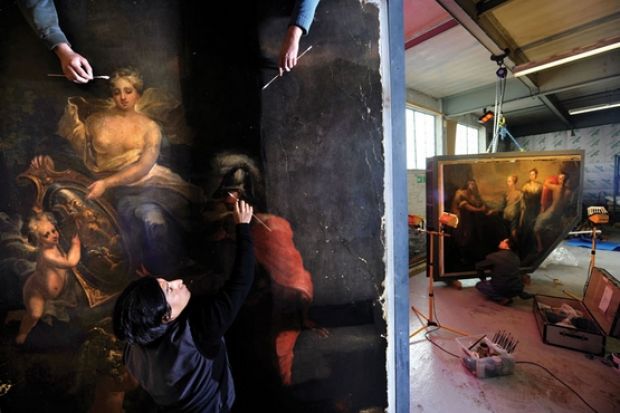Source: Alamy
Culture club: collaboration is key, but arts funding will depend on innovation
The Arts and Humanities Research Council has pledged to commit nearly three-quarters of its budget over the next five years to academic- initiated research, despite its drive towards greater collaboration and interdisciplinarity.
The promise is made in the AHRC’s strategy document for 2013-18, titled The Human World: The Arts and Humanities in Our Times.
The strategy, published on 14 March, says there is a “strong case” for funding to be directed at the kind of project that “takes a wider perspective, develops cross-disciplinary and cross-cutting enquiry and draws on the energies and multiple perspectives of groups, stimulating challenge and exchange”.
It also says that for the first time, AHRC funding will be made available to internationally based co-investigators.
However, The Human World adds that academic-initiated research ensures that “funding reflects the commitments, long-developed expertise and existing knowledge of researchers” while also promoting the “development of cutting edge work quickly and organically”.
For that reason, the AHRC will continue to spend at least 70 per cent of its programme budget on so-called “responsive mode” programmes.
The strategy, developed in consultation with academics, says that increased interdisciplinarity and collaboration will require the development of novel forms of funding and peer review, such as pilot phases, assessment panels, interviews and outline proposals.
The AHRC also aims to improve training and interaction among members of its peer-review college, with whom it hopes to consult more frequently “to identify emergent and innovative research at an early stage”.
A series of initiatives under the umbrella “AHRC commons” will also be launched to improve dialogue and interaction throughout the UK humanities. These will include annual colloquiums on major topics, commissioned reports and a forum for early-career researchers, including postgraduates (on whom the AHRC will continue to spend at least one-third of its budget).
All researchers will be given enhanced opportunities to work with “professional peers inside and outside higher education”, and to “convey their findings to wider public audiences”.
Rick Rylance, chief executive of the AHRC, said the strategy “sets out ways in which we can…expand the way in which the people, skills and research we support interacts with public life to bring cultural, intellectual and economic benefits to the UK and to us all”.
Register to continue
Why register?
- Registration is free and only takes a moment
- Once registered, you can read 3 articles a month
- Sign up for our newsletter
Subscribe
Or subscribe for unlimited access to:
- Unlimited access to news, views, insights & reviews
- Digital editions
- Digital access to THE’s university and college rankings analysis
Already registered or a current subscriber? Login




